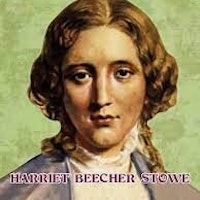True love ennobles and dignifies the material labors of life; and homely services rendered for love’s sake have in them a poetry that is immortal.
True love ennobles and dignifies the material labors of life; and homely services rendered for love’s sake have in them a poetry that is immortal.
Harriet Beecher Stowe

Serving with Love
Topic: Serving Others
If the tie between you is that of true and honest love, Cytherea will put on a gingham wrapper, and with her own sculptured hands wring out the flannels which shall relieve your pains; and she will be no true woman if she do not prefer to do this to employing any nurse that could be hired. True love ennobles and dignifies the material labors of life; and homely services rendered for love’s sake have in them a poetry that is immortal.
Harriet Elisabeth Beecher Stowe was born on June 14, 1811, in Litchfield, Connecticut, United States, into the influential and devout Beecher family. She was the sixth of eleven children born to Reverend Lyman Beecher and Roxana Foote Beecher. After her mother’s early death, Harriet studied at the Hartford Female Seminary, founded by her sister Catharine Beecher. In 1832, she moved to Cincinnati, Ohio, where her father led Lane Theological Seminary. There, she encountered both literary society and the harsh realities of slavery through the stories of escaped enslaved people and the violence of anti-Black riots.
In 1836, Harriet married Calvin Ellis Stowe, a professor of biblical literature, and they had seven children. The Fugitive Slave Act of 1850 prompted her to begin writing Uncle Tom’s Cabin, which was serialized in The National Era in 1851 and published as a book in 1852. The novel gained a wide readership and deepened anti-slavery sentiment in the North and abroad. Stowe said she was inspired by a vision during a communion service and also drew from personal loss—especially the death of her young son—which shaped her empathy for those suffering under slavery.
Over her life, Harriet Beecher Stowe published more than thirty books, including novels, essays, and travel memoirs. She later supported married women’s legal rights and helped found the Hartford Art School. After her husband’s death in 1886, her health declined, and she likely experienced dementia. She died on July 1, 1896, in Hartford, Connecticut, at age 85. Stowe is remembered as a writer who brought moral clarity to public debate, guided by her religious convictions and social conscience.
Stowe, Harriet Beecher. Household Papers and Stories. Boston and New York: Houghton, Mifflin and Company, 1896. Part 2, Chapter 4.

Harriet Beecher Stowe
Theme: Serving

About This Harriet Beecher Stowe Quotation [Commentary]
In Household Papers and Stories, Harriet Beecher Stowe presents a vision of womanhood grounded not in sentiment but in quiet moral strength. For Stowe, the heart of a home is often shaped by a woman’s willing acts of service—acts not diminished by their simplicity, but made luminous by the spirit in which they are offered. She writes that “homely services rendered for love’s sake have in them a poetry that is immortal,” suggesting that domestic tasks, when done from genuine love, carry enduring meaning and spiritual dignity.
Stowe challenges the idea that greatness must be public or dramatic. She affirms the value of daily service, writing that “the true wife is one who stands shoulder to shoulder with her husband, not only in hours of joy, but in the heavy lifting of life.” She describes the “household missionary” as one who transforms the home through “sacrifice of self-will, and the steady preference of the happiness of others.” These ordinary labors may go unseen, but for Stowe, they hold quiet beauty and lasting worth.
This view does not reduce women to subservience; rather, it affirms the moral clarity and endurance of their love. Stowe honors the “invisible ministry of affection, the unnoticed endurance, the daily life of patient cheerfulness,” as fully as any outward success. In her view, the female heart is not passive but active—a source of strength, where love finds form in the dignified labor of care.
Harriet Beecher Stowe’s Christian Moral Vision
Harriet Beecher Stowe’s moral vision was deeply shaped by her Christian faith—especially her belief in the teachings of Christ, the dignity of every human soul, and the redemptive power of love and sacrifice. Her abolitionism, views on domestic service, and ideals of womanhood were all framed within a Christian moral and theological lens. She once wrote, “I did not write it. God wrote it. I merely did his dictation,” when describing Uncle Tom’s Cabin—a clear sign of her understanding of her work as a Christian vocation.
Additional Harriet Beecher Stowe Quotations
Resources
Related Quotes
Copyright © 2017 – 2026 LuminaryQuotes.com About Us